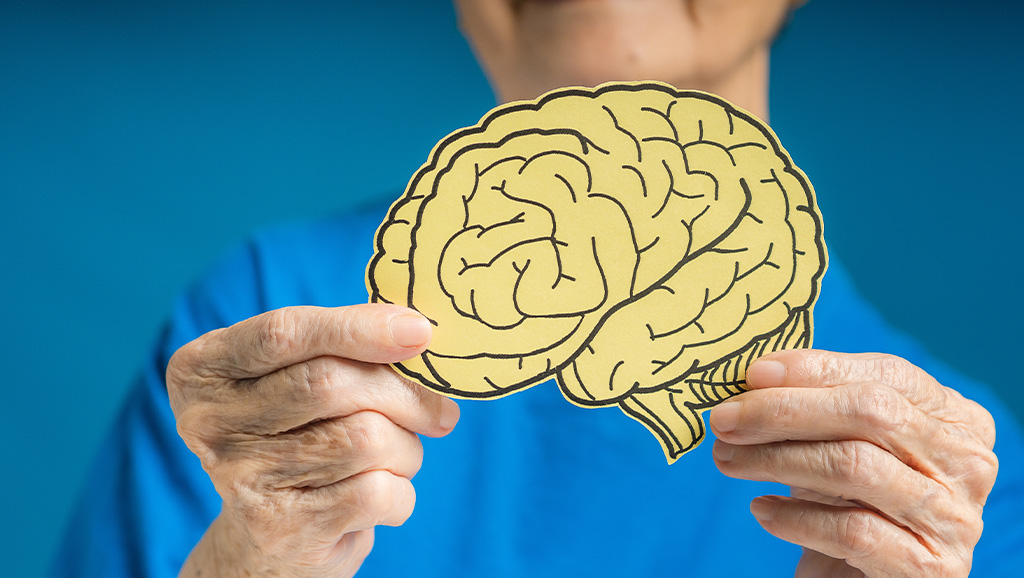Key Findings
Impact Story
Survey Finds Brain Health is a Top Priority for Americans
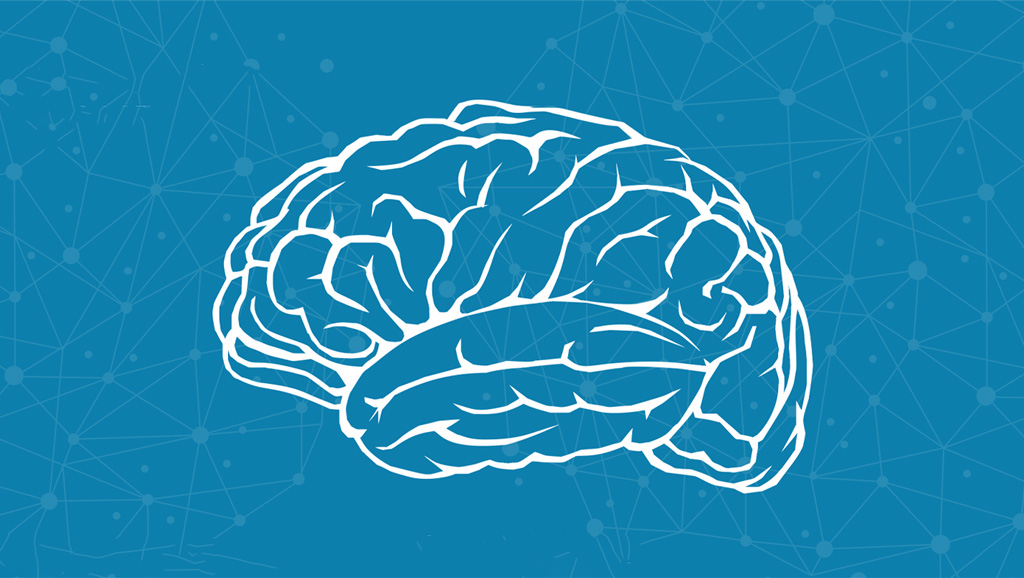
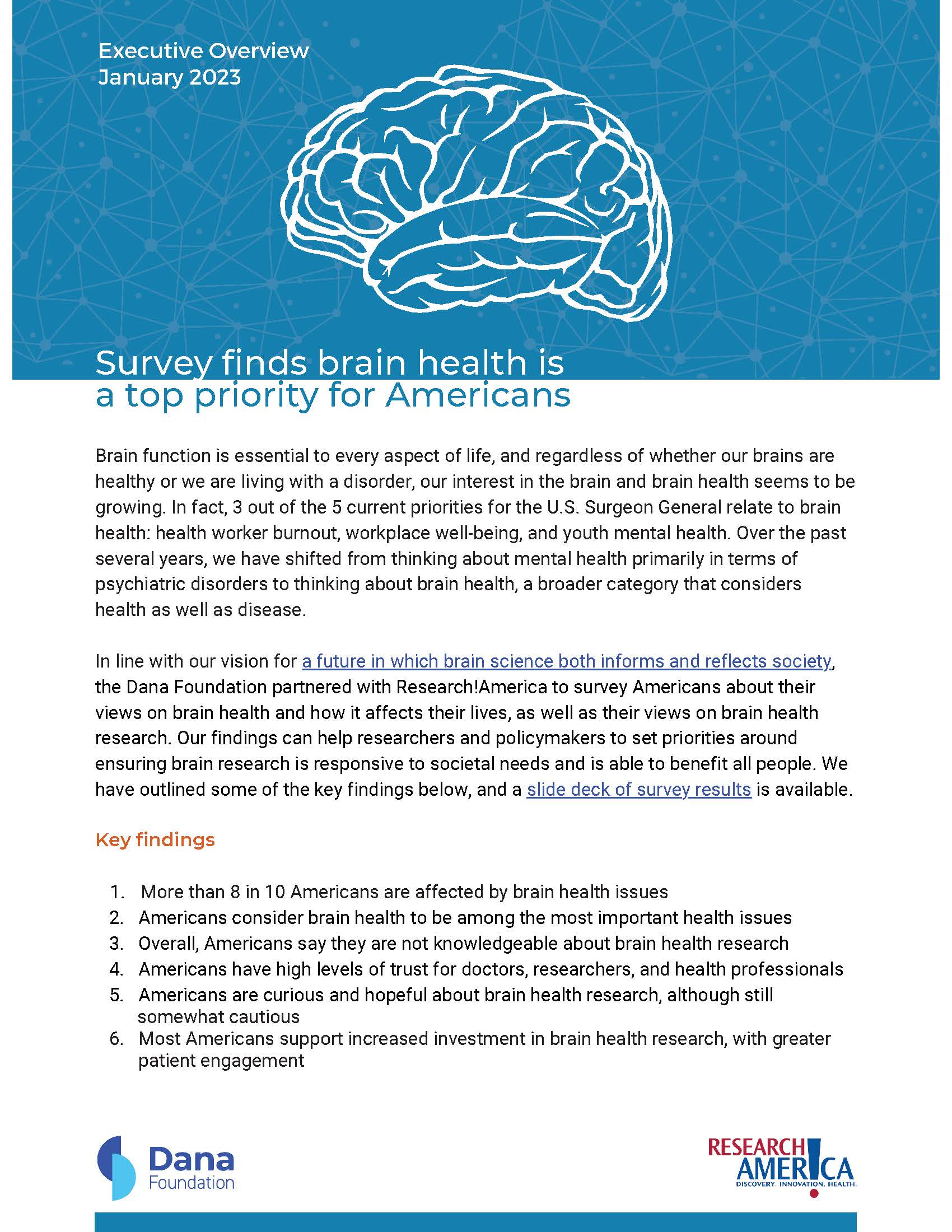
Brain function is essential to every aspect of life, and regardless of whether our brains are healthy or we are living with a disorder, our interest in the brain and brain health seems to be growing. In fact, three out of the five current priorities for the US Surgeon General relate to brain health: health worker burnout, workplace well-being, and youth mental health. Over the past several years, we have shifted from thinking about mental health primarily in terms of psychiatric disorders to thinking about brain health, a broader category that considers health as well as disease.
In line with our vision for a future in which brain science both informs and reflects society, the Dana Foundation partnered with Research!America to survey Americans about their views on brain health and how it affects their lives, as well as their views on brain health research. Our findings can help researchers and policymakers to set priorities around ensuring brain research is responsive to societal needs and is able to benefit all people. We have outlined some of the key findings below, and a slide deck of survey results is available.
- More than 8 in 10 Americans are affected by brain health issues.
- Americans consider brain health to be among the most important health issues.
- Overall, Americans say they are not knowledgeable about brain health research.
- Americans have high levels of trust for doctors, researchers, and health professionals.
- Americans are curious and hopeful about brain health research, although still somewhat cautious.
- Most Americans support increased investment in brain health research, with greater patient engagement.
1. Most Americans are affected by brain health issues
The National Institute of Mental Health reports that nearly 1 in 5 adults and nearly 1 in 2 adolescents lives with a mental illness such as anxiety or depression.
The National Institute of Neurological Disorders and Stroke reports that 1 in 5 adults lives with a neurological illness such as dementia or multiple sclerosis. These figures suggest the vast majority of Americans have direct experience with one or more brain health conditions.
An overwhelming majority of Americans we surveyed – 82% – say that they or someone close to them have experienced at least one brain health condition, with depression (55%), Alzheimer’s disease or dementia (48%), substance use disorder or addiction (42%), and generalized anxiety disorder (42%) the most frequent conditions.

2. Americans consider brain health to be among the most important health issues
Americans rank mental health as one of the most important health issues facing America (37%), with Covid-19 (45%) and the cost of healthcare (44%) as the first and second most cited (respondents were asked to choose the top three health issues affecting America). Public attention on the importance of mental health has risen significantly over the course of the pandemic, and since a national survey in 2021, mental health has surpassed both cancer and drug/opioid addiction as a top concern.

3. Overall, Americans say they are not knowledgeable about brain health research
66% of Americans reported having little or no knowledge about brain health research.
Older Americans report having the least knowledge about brain health research; those aged 18-24 (38%) and 30-49 (41%) are more likely to say they are very or somewhat knowledgeable about brain health research, compared with those aged 50-64 (20%) and 65+ (15%).
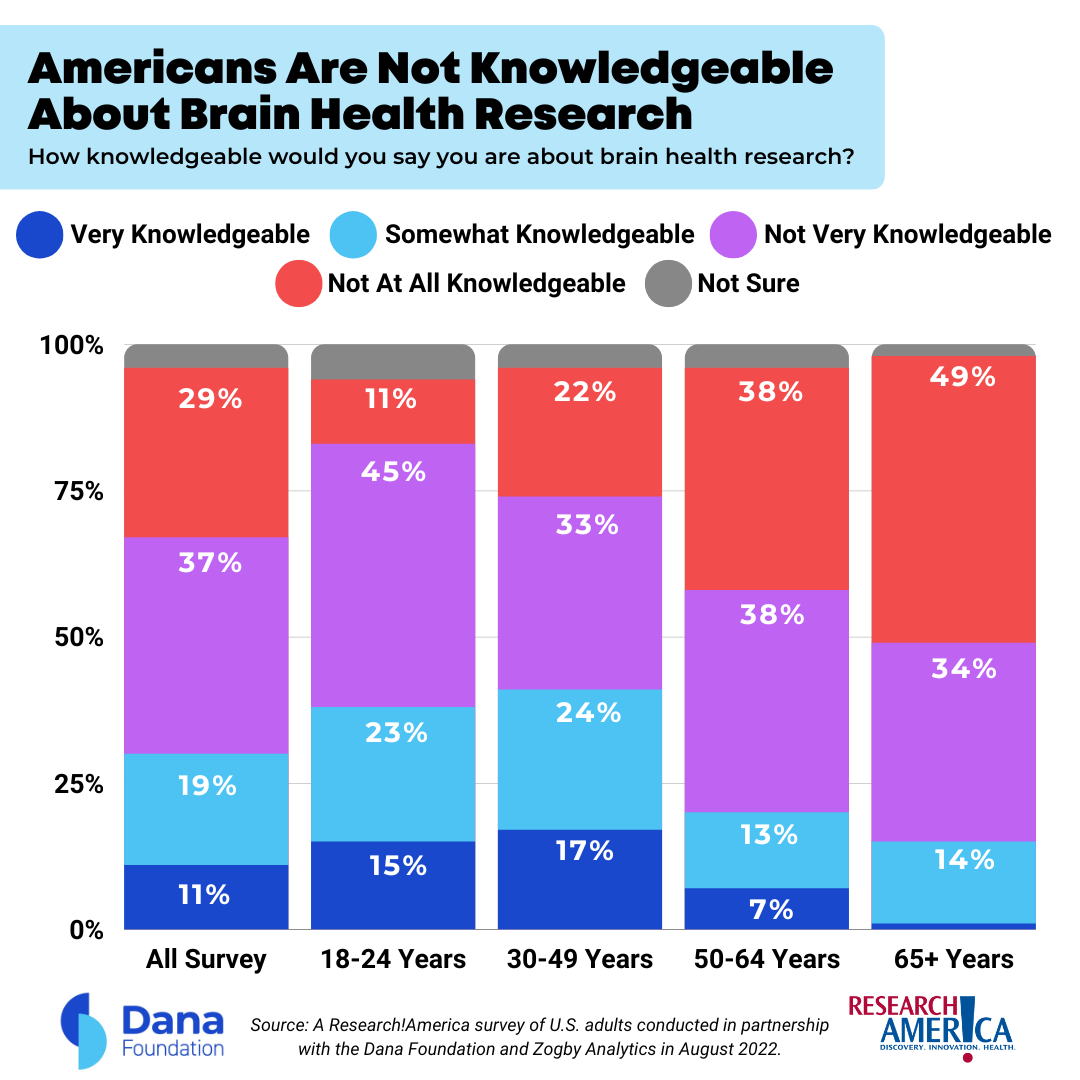
4. Americans have high levels of trust for doctors, researchers, and health professionals
Americans have high levels of trust for doctors (91%), researchers (88%), and other health professionals (87%) as sources of brain health information.
Newspapers and magazines (43%), TV and radio (40%), podcasts (40%), elected officials (31%), and social media (31%) are rated much lower.
The internet is the first place Americans go to seek brain health information (38%) with doctors and other healthcare providers second (31%), even though respondents do not rate online medical forums highly as trustworthy sources of information (56%).
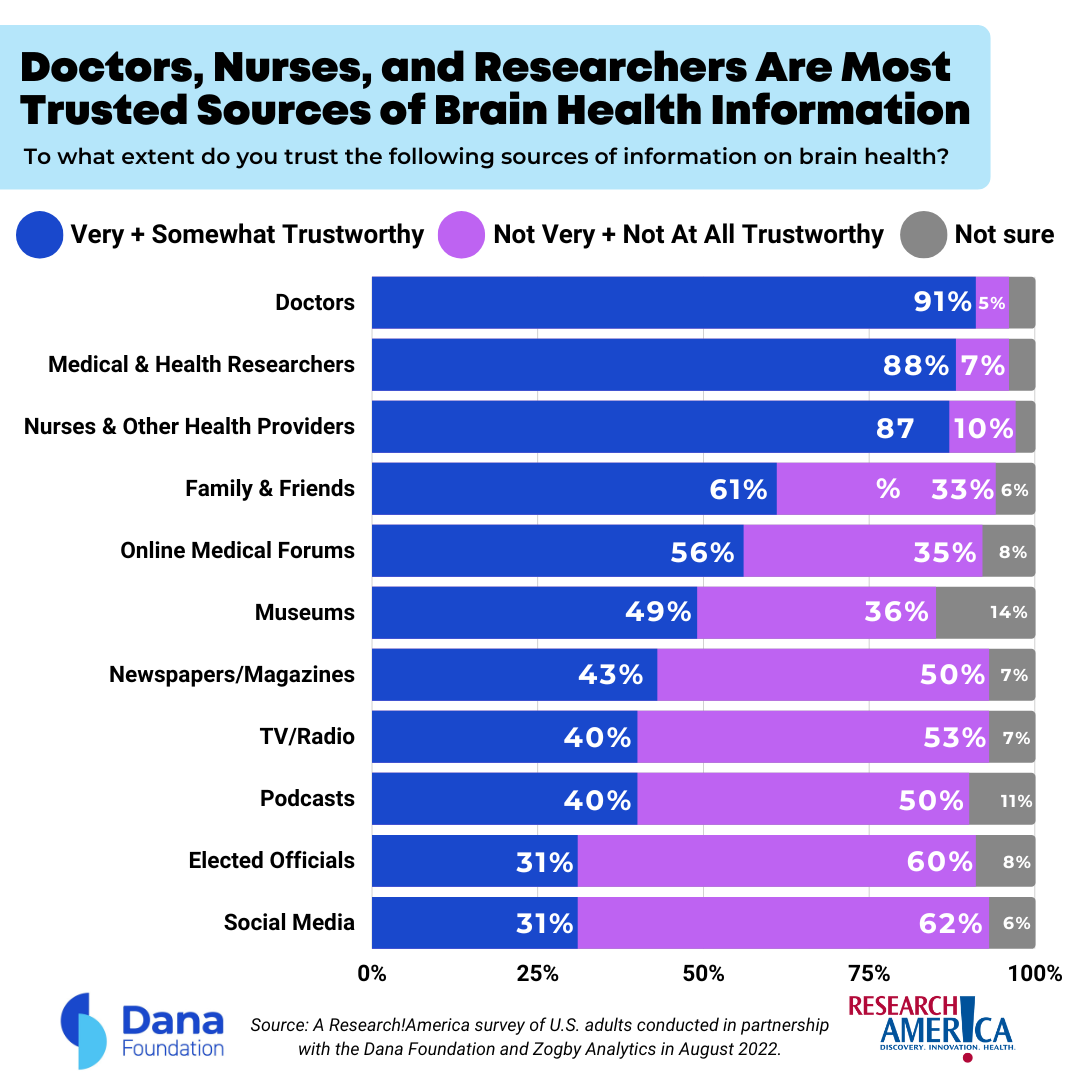
5. Americans are curious and hopeful about brain health research, although still cautious
Americans gave overwhelmingly positive responses when asked about brain research.
They report being “curious” (66%), “hopeful” (59%), “optimistic” (52%), “amazed” (41%), and “open” (37%) about brain research, with only 1% saying they are “uninterested.” Despite their optimism, Americans still report being “cautious” (39%) and “concerned” (33%), with African Americans more likely (44%) to say “concerned” than Asians (38%) or Hispanics (31%).
Americans agree research might lead to ways to correct brain damage resulting from injury or disease (89%), or better treatments for brain diseases such as Alzheimer’s disease or Parkinson’s disease (89%).
However, respondents also have concerns including misuse of brain health data due to inadequate safeguards (64%), unwanted manipulation of brain function (61%), risk of injury or damage to health (58%), and potential social stigma or discrimination against research participants (56%).
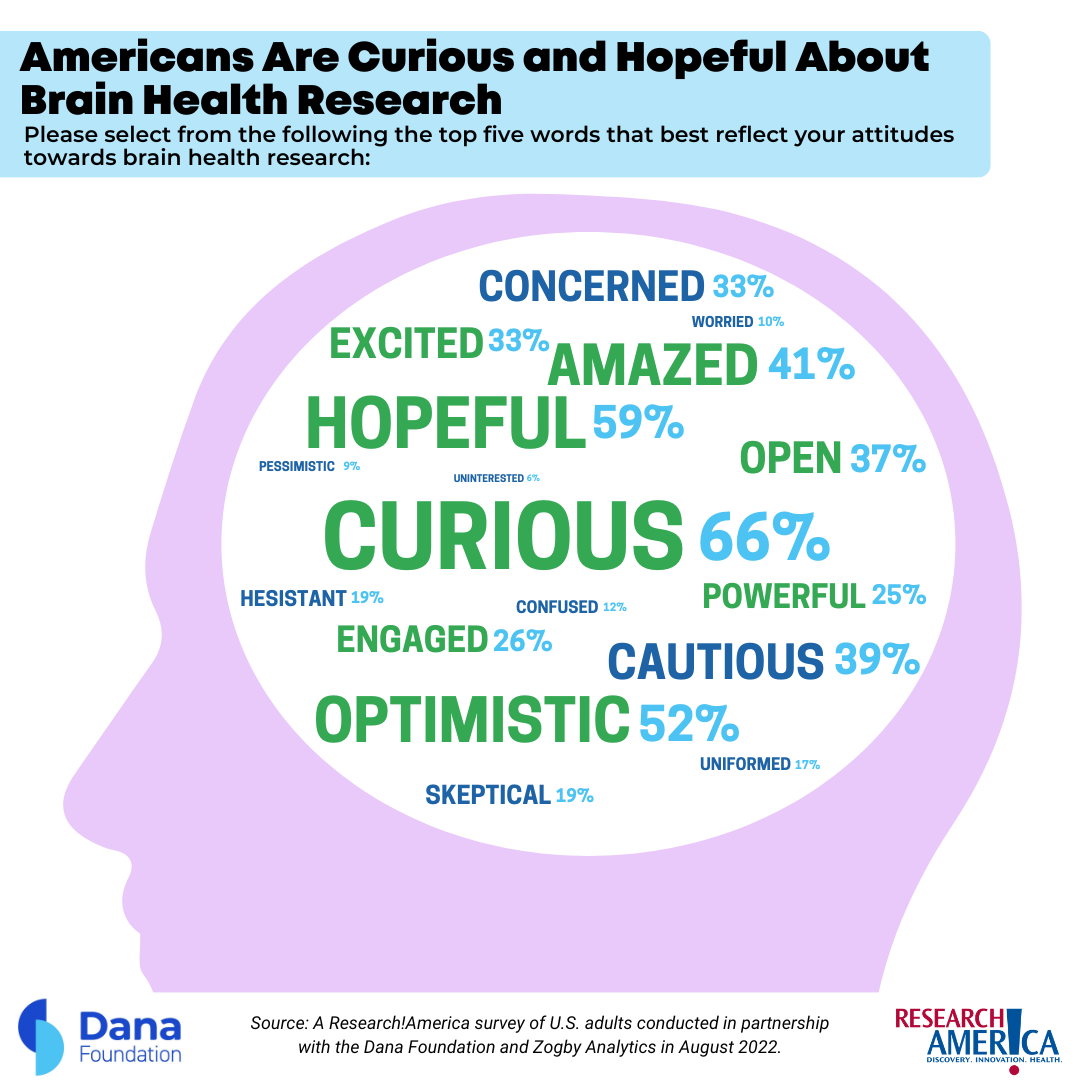
6. Most Americans support increased investment in brain health research, with greater patient engagement
The majority of Americans believe brain health research will have an overall benefit to society (68%) and that it is important to improving family health (80%).
Most people somewhat or strongly agree that people like them benefit from brain health research (67%) and that treatments can typically be accessed by everyone (57%). However, 62% of respondents believe patients should have more of a voice in setting research priorities.
Despite optimism around the benefits, only 33% of respondents believe we are making enough progress in brain health research. Americans are strongly in favor of increased federal funding for brain health research (78%) and incentivizing private sector investment to find treatments and cures for diseases (80%).

Future Directions
These results show that brain health is central to the lives of Americans. Americans believe brain health research is beneficial, and they have a strong interest in having a voice in setting research priorities. Americans are optimistic about brain health research, but remain cautious about the consequences of research participation, and believe it needs more safeguards. Despite these strong opinions, Americans also feel they are not knowledgeable about brain health research, yet they seek information online before visiting highly trusted sources of information such as doctors and other healthcare workers.
Our findings call for the Dana Foundation and others to focus on key areas in neuroscience and society, including providing reliable and trustworthy sources of neuroscience information, creating more avenues for patients to engage with setting research priorities, and enabling thoughtful and inclusive discussions with the public on the responsible use of research products and data. Finally, Americans believe that neuroscience research needs to be supported at the federal and private levels for progress toward much-needed treatments and better understanding of how to maintain brain health.
This summary is based on data from a nationwide online survey conducted by Zogby Analytics on behalf of Research!America in August 2022 among 1,023 adults, plus 1,218 additional adults for minority population oversampling. The survey has a theoretical sampling error of +/- 3.1 percent. The theoretical sampling error was higher for subgroups. A PDF version of this overview and a slide deck of survey results is available.

